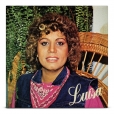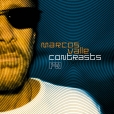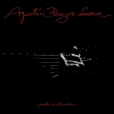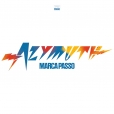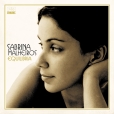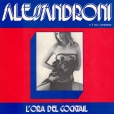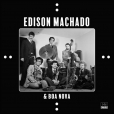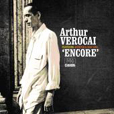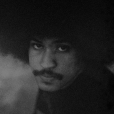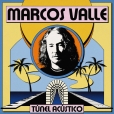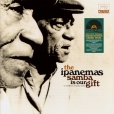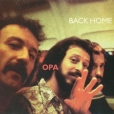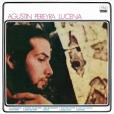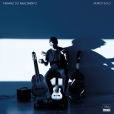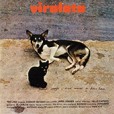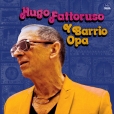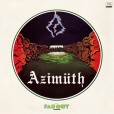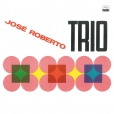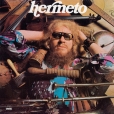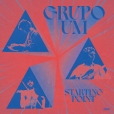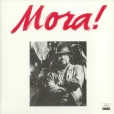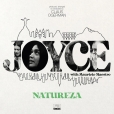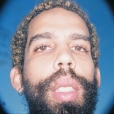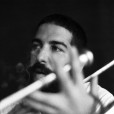Your basket is empty

The first-ever vinyl reissue of this ravishingly beautiful private press album from 1988; Agustín’s most sought-after LP.
‘By now, Agustín had established himself as one of Argentina’s foremost interpreters of Brazilian music. The seventies brought success with his group Candeias, and recognition in Brazil, where he formed friendships and collaborations with luminaries such as Vinicius de Moraes, Baden Powell, Dorival Caymmi, Toquinho, and Maria Bethania. Following the era of dictatorship in South America, Agustín spent the late seventies and early eighties living and touring in Norway, during European travels with his quartet.
‘Recorded after returning to his native Buenos Aires — and featuring a team of crack Argentinian musicians, including drummer Osvaldo Avena, flautist Rubén Izarrualde, and saxophonist Bernardo Baraj — Puertos de Alternativa emerged from this confluence of diverse experiences, contexts, and influences. It begins rooted deeply in South American soil, drawing clear inspiration from Brazilian guitar masters like Heitor Villa Lobos, Garoto, and Baden Powell. But a sense of journey unfolds, evoking new landscapes and horizons — from the crystalline beauty of glacial Norway to the gentle currents of the Rio de la Plata.’
Her classic, debut album from 2005; now out on vinyl for the first time.
A precociously masterful collection of sambas and bossas, featuring some of Brazil’s very best musicians, including Azymuth crew.
‘Renowned for his work on iconic Spaghetti Western scores with Ennio Morricone, and his groundbreaking contributions to library music, Alessandroni lavishes his other-worldly genius on this wonderful cocktail of an album, blending jazz, bossa and lounge, garnished with his signature wordless vocal arrangements and lush instrumentation. Featuring his remarkable talent on guitar, piano, and mandolincello, this album paints a vibrant portrait of 1970s cosmopolitan cool.’
Besides all-new recordings, this features two fond souvenirs from Valle’s late-seventies sojourn in California, out of reach of the military dictatorship at home: Feels So Good, a precious two-step collaboration with Leon Ware, initiated in 1979 but unfinished till now; and a fresh version of Life Is What It Is, sunny AOR disco originally written for the Chicago 13 album, now with upped tempo and a deeper groove.
The rhythm section is Alex Malheiros and Renato Massa, from Azymuth, and percussionist Ian Moreira.
The dazzling 1970 debut of this Argentinian guitarist, featuring several of his own mystically beautiful bossa and samba jazz compositions, besides sensational versions of songs by Baden Powell, Vinicius De Moraes, and A.C. Jobim.
Originally released in 1979 — ‘a product of my hybrid musical influences that joins together flavours of marchinhas de carnaval, frevo, toada, classical, baião, mpb and jazz,’ says Antonio.
The opener Cascavel is a gold-plated London jazz-dance classic; and the last-ever record spun at Plastic People.
A year after Os Tatuís, José Bertrami returned to the studio, this time stripping back to a trio. Again featuring Claudio Henrique Bertrami on double bass, and with Jovito Coluna on drums, the José Roberto Trio recorded their one and only album in 1966, featuring compositions by Baden Powell, Manfredo Fest, and Marcos Valle. The LP also featured three of Betrami’s own compositions: the wistful Lilos Watts, the groovy Kebar, and the dazzling Talhuama.
Another jewel from the golden age of the Brazilian bossa jazz trio — Bossa Três, Milton Banana Trio, Tenório Jr,, Bertrami’s own Bossa Jazz Trio — ushered in by the Tamba Trio, and nourished along the way by jazz greats from Nat King Cole to Bill Evans,
The first time out for this buried treasure recorded in 1977 at Columbia Studios in New York with Claus Ogerman.
Featuring fellow Brazilians Mauricio Maestro, Nana Vasconcelos and Tutty Moreno, and in-demand statesiders including Michael Brecker, Joe Farrell and Buster Williams, it kicks off with a sensational eleven-minute version of her anthemic Feminina. Check out Descompassadamente, too. Lovely stuff.
‘Starry-eyed Brazilian love songs, ambient vignettes, warm, home-cooked beats and gentle strokes of MPB genius.’ Even a shot of West African high life!
‘The beautifully laid back sunshine soul opener has all the charm of early-70s João Donato… On the R&B inspired Quero Dizer, the swirling, lo-fi, kalimba and guitar-fronted beat is turned into a feel-good hit by the ingenuity of Berle’s honey-soaked vocal melody… Powerfully intimate, O Nome Do Meu Amor is a guaranteed tearjerker, with his stunning voice soaring over gently plucked acoustic guitar and the textural flutter of soft movement, as if we hear him writing the song in the moment…’
“A super, subtle, beautiful record,” says Gilles Peterson.

